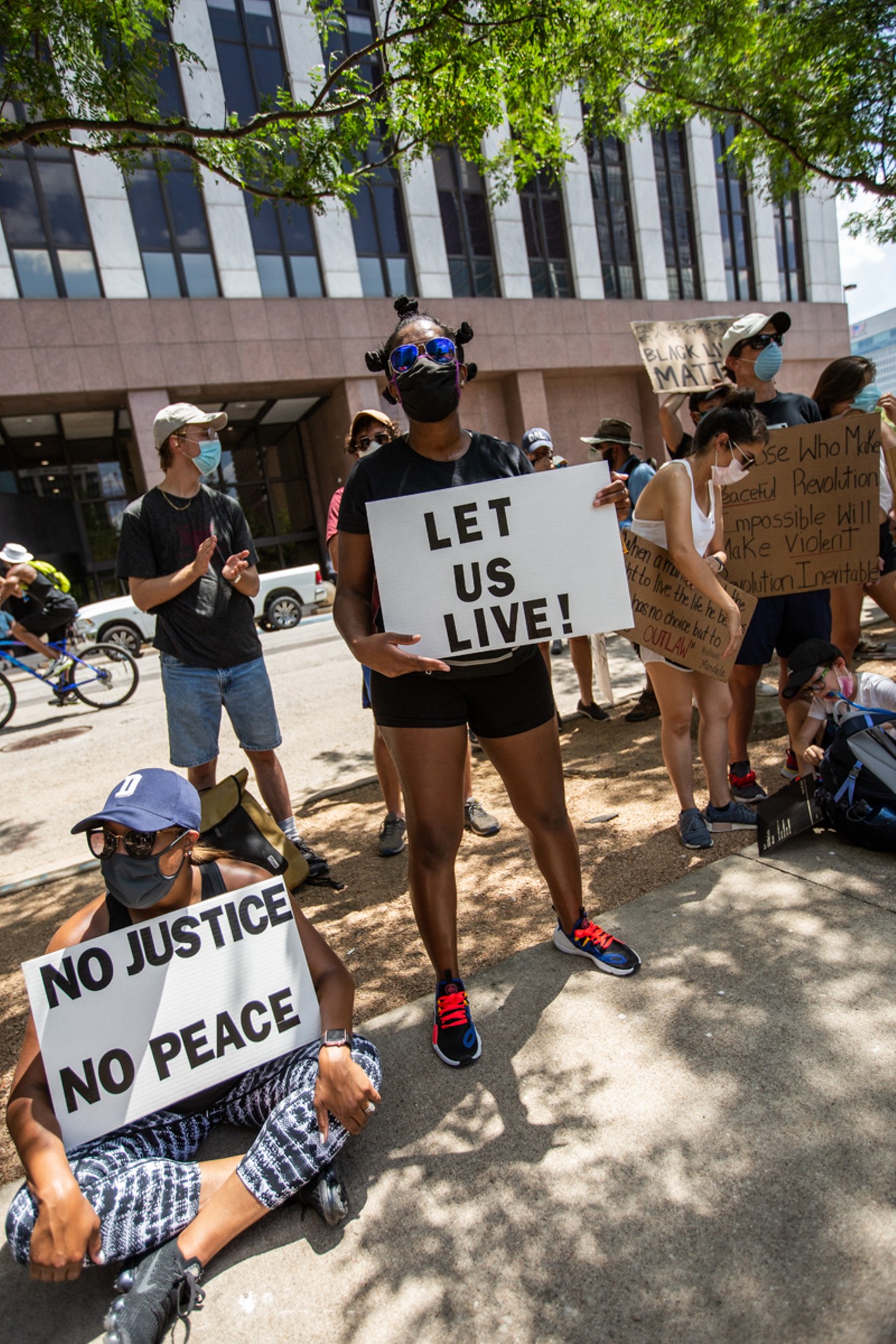Four panelists met virtually for the discussion moderated by Cheryl Wattley, professor of law and director of experiential education at the University of North Texas Dallas.
"We have built this country on injustices that need to be corrected," Wattley said.
The conversation on justice is the second of a three-part series hosted by the city's Office of Equity and Dallas Truth, Racial Healing and Transformation. During the first of this series, longtime community activist Pamela Grayson chimed into the chat section, criticizing panelists for not including local activists in the conversation. This week, she was one of the panelists. Grayson is also the director and founder of Collective Activism, a local organization working toward sustained social justice. Throughout the online event, panelists spoke about what they mean when they say defund the police.
Grayson said, to her, defunding the police doesn't mean abolishing the police. It means reallocating their funds.
"I want to defund and then refund," Grayson said.
Grayson also said that people can help ensure police resources go to good use by not calling on them to fix everything. She added that the Dallas Police Association, the union that represents DPD officers, should be disbanded.
On Thursday, around the same time that the panelists began their discussion, Combined Law Enforcement Associations of Texas, or CLEAT, put out a press release condemning Dallas Police Chief U. Renee Hall for the recent video procedure change. CLEAT is Texas' largest law enforcement association. Referring to the change, Charley Wilkison, executive director, said it will hold Dallas and Hall legally responsible for each time an officer's privacy, department policy and state law is violated.
Sara Mokuria, the co-founder of Mothers Against Police Brutality, said defunding the police is an acknowledgment that police have failed to meet their responsibilities. Mokuria added that there needs to be a reimagining of policing. Jesuorobo Enobakhare, chairman of the Dallas Community Oversight Board, agreed, saying the status quo is not working.
"When I say defund the police, I mean defund the police in the same way that we defund rec centers, libraries and senior services," Mokuria said."When I say defund the police, I mean defund the police in the same way that we defund rec centers, libraries and senior services." - Sara Mokuria, Mothers Against Police Brutality
tweet this
Just last month, several members of City Council sent a letter to City Manager TC Broadnax inquiring about defunding DPD's budget. When he announced that the letter had been sent, South Dallas council member Adam Bazaldua said City Council members are committed to reimagining public safety.
Tonya McClary, the monitor at the Office of Community Police Oversight, reminded everyone on the panel that victims of police brutality needed to be included in discussions on how to move forward and thanked Mokuria for taking part in the conversation. McClary also encouraged people to share their thoughts at the next Community Police Oversight Board meeting on July 15.
Much attention in this most recent wave of police brutality protests has been on training. Activists have said police need training in de-escalation and implicit bias. But Wattley said that some police departments, such as DPD, already have this training. Wattley asked the panelists why it’s not working.
Grayson said what happened to protesters on the Margaret Hunt Hill Bridge June 1 is evidence that this training is not working. Grayson was on the bridge that night, when officers trapped peaceful protesters on the bridge, herded them with non-lethal weapons and arrested them. No one was charged with a crime. During the discussion, she described being hit by a "rubber bullet" while lying on the ground, waiting to be put in zip ties. Enobakhare said the problem is that police training is not always implemented in police culture.
"Throwing more money at police departments is not solving the problem," Enobakhare said.
The third roundtable discussion in the series is scheduled for July 9.












